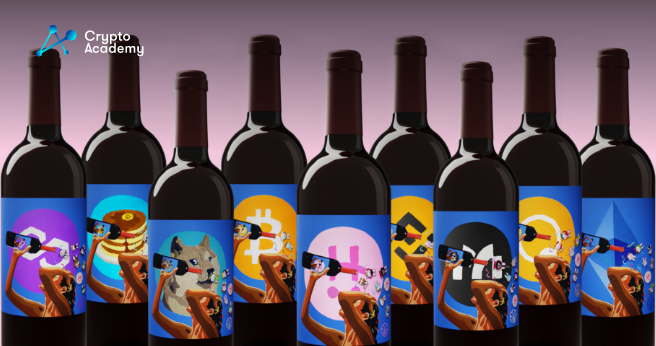Blockchain and NFTs are emerging as innovative tools in the fine wine and spirits industry to combat counterfeits and appeal to younger consumers.
When global travel came to a grinding halt due to the pandemic, it left many businesses in a state of uncertainty, including Domaine Fourrier, a prominent wine producer in Gevrey Chambertin, Burgundy, France. To circumvent the chaos, Jean-Marie Fourrier, the company’s president, turned to an unlikely ally: non-fungible tokens (NFTs).
To maintain contact with his international distributors, Fourrier turned to Crurated, an online auction house established in 2021. This platform allows consumers to bid on collections, single lots, and barrels of wine directly from producers. Domaine Arnoux-Lachaux and Romanée-Saint-Vivant Grand Cru, some of the platform’s offerings, have seen a remarkable uptick in price and critical acclaim, respectively.
To guarantee each bottle’s authenticity, Crurated creates a unique NFT for it. This NFT acts like a history book for a classic car, providing traceability and making it more desirable than bottles without such a history. After the auction, the bottles stay in the warehouse until shipment, keeping the wine safe and sparing consumers from excess import tax or a home full of undrunk bottles.
The Wine Industry’s Blockchain Journey and its Impact
In 2021, the wine industry began exploring blockchain technology and NFTs. The technology’s ability to track data, confirm origin, and digitize assets proved beneficial for tackling issues like warehouse management, quality control, counterfeits, and a gap in communication between brands and consumers.
A year later, luxury brands began experimenting with the NFT technology. Hennessy, a brand under LVMH, released two NFTs for its Hennessy 8 with an exclusive trip to its estate in Cognac, France. Similarly, Robert Mondavi Winery introduced its generative art NFTs along with magnum bottles to the Asian market. These innovations mirror the crypto collectibles concept of 2021, where real-life perks were tied to digital assets.
Despite the promise, the initial response has been tepid. The negative press around scams, money laundering, and significant losses in the blockchain and NFT realm has not helped. But Alfonso de Gaetano, founder of Crurated and former Google employee, believes that this is changing, and within the next three to five years, a majority of top wines will have a blockchain presence.
An Appeal to the Younger Generation
Crurated’s proposition has gained traction among winemakers for its producer-centric approach. However, what interests producers like Fourrier more than traceability is the potential appeal to younger consumers. The uncertainty lies in whether this new generation will buy wine in the same way as their predecessors. By linking NFTs to bottles of wine, producers hope to attract tech-savvy younger consumers.
However, despite his faith in the technology, Fourrier has been cautious, allocating only 20% of his annual 3,500 cases to Crurated. The reasons include the technology’s early stage, a desire to remain loyal to his traditional distributors, and a personal preference for his wine to be enjoyed in social settings over warehouses.
Blockchain in the World of Spirits
Similar to wine producers, spirits producers are also testing the blockchain waters. John Rhodes, owner of Caskells, a spirits shop, and co-founder of the Hong Kong Whisky Festival, has started offering an NFT membership that comes with a host of privileges, including cask purchases, access to storage space and bottling lines in Scotland, and unique experiences.
However, this digital revolution in the world of fine wine and spirits has been met with skepticism. Critics argue that blockchain is an unnecessary addition to an already functioning system. They question the lack of adoption by major brands and believe that the current chain of proof through certificates is sufficient.
A Potential Advantage for Smaller Investors
Proponents like Alvin Lam Nin-chun, founder of cask management and bottling company Courser of Woodland, believe that blockchain and NFTs can cater to cask investors with limited budgets. Lam’s NFTs come with the option of an augmented-reality label and a physical figurine, providing tangible assets for collectors.
Blockchain’s adoption in the wine and spirits industry is still in its early stages. While its benefits are promising, mass adoption will require a significant shift in mindset among traditional producers. But as pioneers like Rhodes, Lam, and Crurated continue to push boundaries, big brands may soon join the blockchain train. After all, blockchain could be the key to connecting producers with the next generation of consumers.

